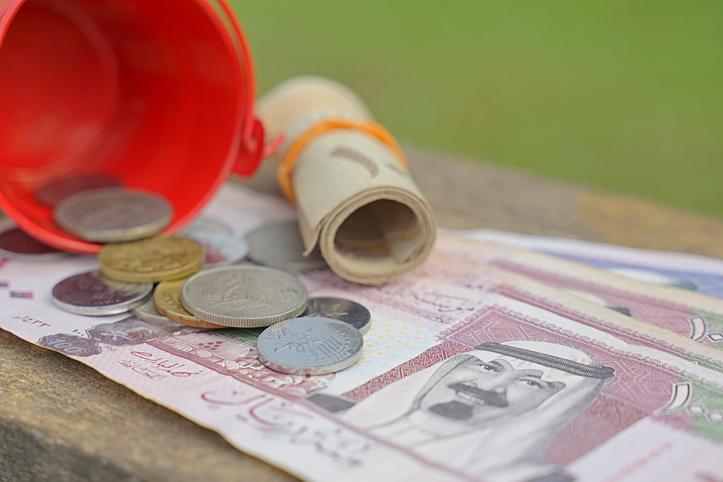ESG Sukuk: The Rise of Ethical Investing in Bonds
The global sukuk market is pivoting towards sustainability, with ESG sukuk expected to surpass $50 billion in the coming years. What's driving this shift?
Published May 09, 2024 - 00:05am

Image recovered from zawya.com
RIYADH/DUBAI: A surge in the environmental, social, and governance (ESG) sukuk market is underway, with the industry projected to exceed a value of $50 billion globally in the next two years. This growth is underpinned by a blend of funding diversification goals, ESG mandates, evolving regulatory frameworks, and government-led sustainability initiatives that are reshaping the landscape of Islamic finance.
Industry reports from Fitch Ratings and other analyses highlight a 60.3 percent year-on-year increase, totaling $40 billion in ESG sukuk by the end of the first quarter of 2024. Investment-grade ESG sukuk, which practically make up all of Fitch-rated ESG offerings, have begun the year with noteworthy regulatory advancements. These initiatives potentially aid in standardization, fostering a robust ESG ecosystem, and enhancing transparency across financial markets.
In the Gulf Cooperation Council (GCC) countries alone, ESG sukuk have reached an impressive $15.9 billion outstanding, claiming a 45 percent share of the ESG debt mix. Similar trends are emerging globally, with countries like the UAE and Saudi Arabia introducing Green Financing Frameworks, while regulators and stock exchanges across the world, including the Islamic Development Bank and London Stock Exchange Group, publish new guidance for ESG sukuk issuance.
Colombo's decision to include sukuk products in its stock exchange by the end of May marks Sri Lanka's foray into this evolving market, aiming to attract foreign funds and support economic growth. Meanwhile, corporate endeavors like Aldar Properties' $500 million green sukuk and Al Rajhi Bank's plan for sustainable sukuk issuance signify the private sector's alignment with global environmental objectives.
These advancements not only represent a shift in investment strategies towards incorporating ESG values but also indicate a growing appetite for sustainable financial instruments. With standardization efforts and inclusive regulatory landscapes, the sukuk market is poised to play a pivotal role in channeling investments towards sustainable development, both in conventional and Islamic financial spheres.
The contemporary surge in ESG sukuk, a form of Islamic financial certificate similar to bonds but compliant with Sharia law, mirrors a broader movement towards responsible investing that emphasizes the importance of sustainability and social governance. As the world grapples with the dire consequences of climate change and social inequities, the financial sector is increasingly adopting policies that reflect the urgency of these global challenges. The shift is partly inspired by investors who are more conscientiously voting with their dollars, preferring portfolios that yield not only financial returns but also contribute to the greater good.
The rapid expansion of the ESG sukuk market also reflects a realization among issuers that such instruments can boost their appeal to a wider range of investors. Traditional investors interested in Sharia-compliant products are joined by ethical investors focusing on sustainability. This intersection is broadening the market and providing novel opportunities for financing projects that meet strict environmental and social criteria. Analysts predict that as ESG criteria become more deeply integrated into the investment decision-making process, the demand for such financial products will only grow steeper.
Harmonization of standards is a key factor in the blossoming ESG sukuk market. This harmonization is pivotal to eliminating discrepancies that can exist between different jurisdictions or interpretations of Sharia compliance and ESG principles. The issuance of coordinated guidance, like that of the Islamic Financial Services Board and the Accounting and Auditing Organization for Islamic Financial Institutions, is creating common ground for issuers and investors, thereby simplifying investment processes and enhancing investor confidence.
Furthermore, there is a clear intent by Islamic financial institutions to align with the United Nations Sustainable Development Goals (SDGs), as evidenced by the increasing number of sukuk issuers citing specific SDGs in their issuance documents. These goals, which include affordable and clean energy, responsible consumption and production, and climate action, among others, guide issuers in the creation of products that support these targets while providing competitive returns.
Yet challenges remain in cultivating an environment conducive to the growth of ESG sukuk. Among these challenges is the necessity for consistent reporting and disclosure standards, which are essential for the assessment and comparison of ESG credentials. Another challenge is the greening of the entire investment chain, which requires the adoption of more sustainable practices in asset management, underwriting, and investor engagement. Addressing these issues is critical to the market's maturity and resilience.
The symbiotic relationship between sustainable development and Islamic finance is becoming increasingly apparent. ESG sukuk serve as a concrete manifestation of this synergy, offering an ethical investment alternative that supports social and environmental projects in line with Islamic principles. As global awareness rises and the imperative for sustainable development becomes undeniable, the ESG sukuk market is likely to become not just a niche but a fundamental segment of financial markets worldwide.
When looking to the future, it is evident that innovation will be the driving force behind the continued evolution of the ESG sukuk market. Issuers are exploring new ways to package sustainable projects into investable products, leveraging technology and novel financial structures. This innovation extends to the digitization of sukuk issuance, which could streamline processes further, increase accessibility, and reduce costs. The potential for blockchain technology, for instance, to revolutionize the tracking of ESG metrics and enhance the integrity of the underlying assets is vast and represents a frontier to be explored.
Ultimately, the burgeoning ESG sukuk market is a testament to the growing convergence between ethical financing and mainstream investment strategies. As it continues to evolve, it will likely usher in a new era of financial instruments designed for the dual purpose of generating returns and creating a positive impact on the world, making financial markets more inclusive and conscious of the pressing ecological and social issues of our time.







